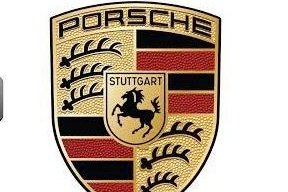Nissan and Porsche were ordered to correct false gas emission information for their diesel cars in South Korea. Images courtesy of Nissan, Porsche
SEOUL, Oct. 25 (UPI) — South Korea’s anti-trust watchdog said it would require Nissan and Porsche to correct inaccurate gas emission totals for their diesel vehicles.
The Korea Fair Trade Commission said Sunday that Nissan Motor and Porsche had submitted inaccurate information about their vehicles’ gas emission totals to South Korean customers. The watchdog also opted to levy a $150,000 fine on Nissan.
The Korea FTC said it believes that the two companies employed software programs that make an exhaust gas recirculation valve work only during the tests so that emissions would not rise above the regulatory ceiling.
The EGR valve is designed to redirect some exhaust gases from the engine back into the air so as to diminish exhaust emissions. But the device has a downside: decreased operation and fuel capacity for the vehicle.
The software at issue allegedly blocked the EGR valve from working properly on the road, causing the diesel cars to fail to meet South Korean standards in real-world driving situations. For example, Nissan vehicles emitted up to 10 times more nitroge oxides, according to the FTC.
This is not the first time that foreign brands have been punished for submitting false gas emission numbers, as Audi-Volkswagen Korea and Stellantis were fined in September.
The regulator is also investigating Mercedes-Benz Korea.
“Since the Dieselgate incident in 2015, the South Korean regulator has kept a close eye on imported diesel cars. The standards and tests are really strict now, especially regarding EGR,” Daelim University automotive Professor Kim Pil-soo told UPI News Korea.
“More diesel automakers are expected to be caught submitting controversial information about their emissions,” he said.
In 2015, Volkswagen Group was found to have violated the Clean Air Act in the United States by using technology that bypasses diesel-engine pollution tests. The scandal cost Volkswagen tens of billions of dollars and brought attention to the pollution caused by diesel vehicles.
